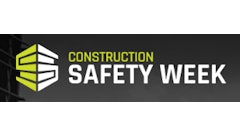
According to Bureau of Labor Statistics, the Construction, along with health care and personal care, will account for one-third of all new jobs through 2022. However with 70% of construction companies nationwide having trouble finding qualified workers, the industry is close to facing a real labor crisis. Many believe that a continued disinterest from America’s youth is still the bigger cause of the industry’s ongoing struggle.
Congressmen Jim Langevin (D-RI) and Glenn Thompson (R-PA), co-chairs of the Congressional Career and Technical Education (CTE) Caucus, have introduced the Transportation Workforce Centers of Excellence Act to boost transportation workforce training opportunities offered at community and technical colleges across the nation in hopes to spur interest in these thriving careers.
The Transportation Workforce Centers of Excellence Act would provide $50 million in competitive grants, which would be disbursed to Centers of Excellence in Transportation Workforce Training, consisting of a consortium of high-performing two-year colleges. The grant funds are to be used for the strengthening of education and training programs directly related to targeted transportation industries, including, but not limited to, manufacturing, operation, design and infrastructure engineering.
“A highly skilled workforce is necessary to revitalize our national transportation system,” Thompson said in a statement. “With more than six million open jobs, the demand for qualified workers is greater than ever. This bill will help us meet infrastructure demands, close our nation’s skills gap and reward schools who have gone above and beyond by establishing Centers of Excellence.”
The bill authorizes investments to develop career pathways that lead to credentials in transportation-related industries that could range from manufacturing to operation, design and engineering of infrastructure. The legislation prioritizes providing on-the-job training and work-based learning, developing dual enrollment programs to train high school students, promoting training related to new technologies and outreach and career counseling to increase participation in the transportation sector. It also promotes partnership and collaboration among employers, state agencies and other community partners to address training needs.
“Community and technical colleges like the Community College of Rhode Island, play a vital role in developing a high-skilled transportation workforce,” said Langevin. “Investing in these institutions and their educational offerings related to high-demand industries is a direct investment in the future of our nation. We must support these programs now to close the workforce gap and rebuild our national infrastructure.”



















